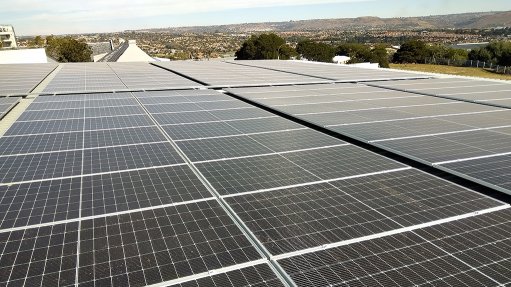
A MORE EFFICIENT APPROACH Companies must consider energy efficiency and embedded generation together when calculating their energy requirements
While the implementation of energy efficiency measures reduces demand on South Africa’s fragile power system, the climate change agenda continues to significantly influence corporate South Africa’s efforts in this respect, says renewable-energy solutions company Solareff – a member of nonprofit organisation the Green Building Council South Africa.
“No one can argue the legitimacy of climate change any longer. It’s happening and is a big driver. Employing energy efficiency measures is the right thing to do from a climate perspective because if everyone fails to act now, the planet will not be preserved for future generations,” notes Solareff CEO Jaco Botha.
However, there are additional benefits of adopting more energy efficient solutions.
Energy efficiency makes financial sense for companies, regardless of their motives, and can help South Africa put an end to loadshedding by ensuring that there is sufficient generation capacity to supply the energy needs of the country.
“This, in turn, will also benefit all industries financially, as well as government,” states Botha.
However, as more companies turn to embedded generation to supplement their energy needs on the back of the current 100 MW licensing exemption threshold, they are failing to consider energy efficiency and embedded generation together, he adds.
“Companies are installing embedded generation solutions based on their current consumption without considering the impact of applying energy efficiency measures and, thereby, are exceeding their energy requirements.
“While one does not necessarily need to happen before the other, it is important for clients, service providers and consultants, specifically, to take this into consideration when calculating energy requirements,” says Botha.
Companies also fail to “see the low-hanging fruit”, he notes, explaining that there is sometimes a simple means, such as opening windows instead of relying on air conditioners, to improve a company’s energy efficiency and management.
The development of systems that can effectively manage the multiple energy sources employed by local companies to ensure adequate power supply is not that simple, states Botha.